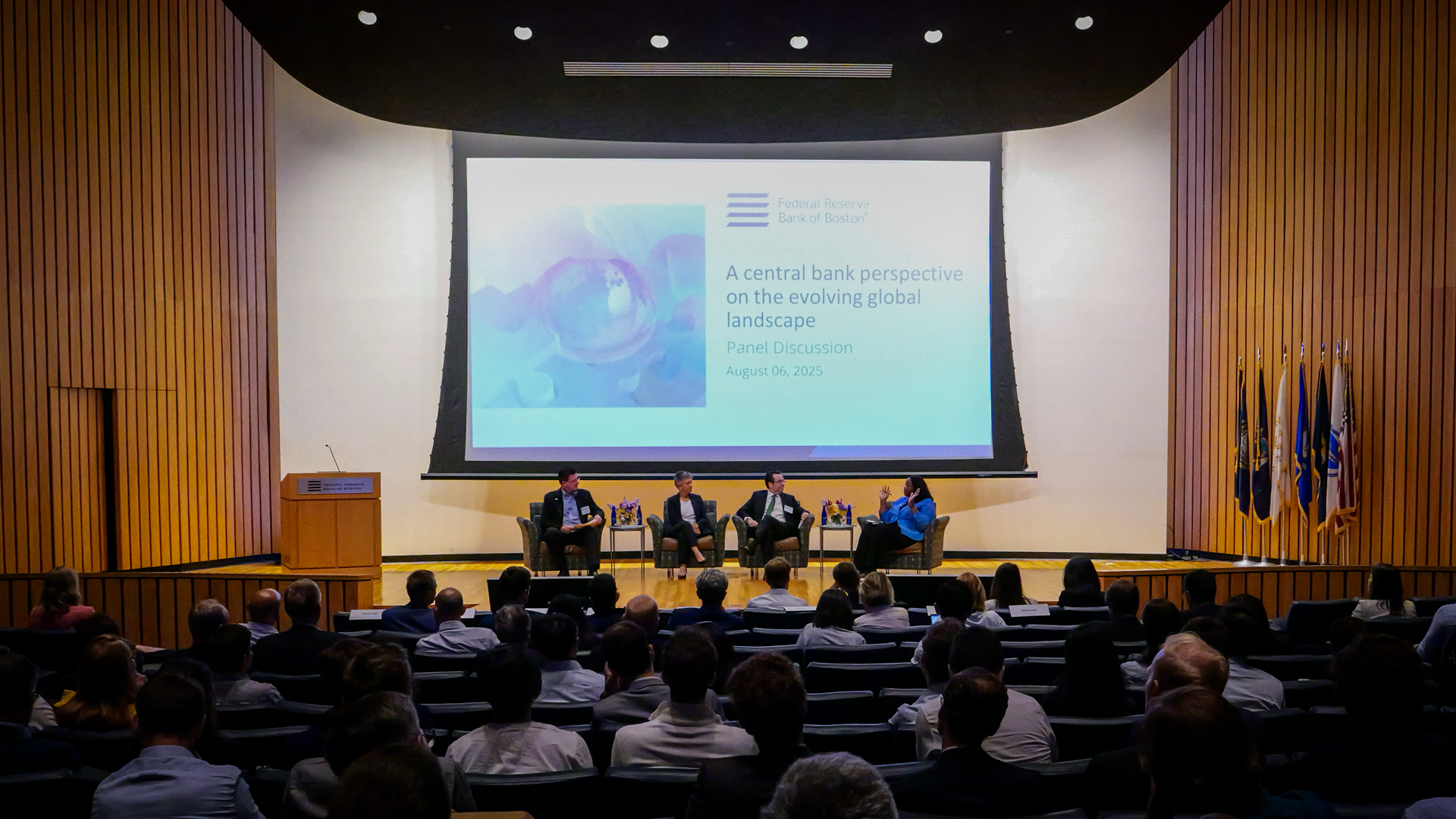How is growing uncertainty, tech innovation affecting the U.S. and global economies? 
Central bank officials discuss economic impacts of uncertainty and AI at Boston Fed panel 
Central bankers explored the impacts of uncertainty across the U.S. and global economies during a panel discussion at the Federal Reserve Bank of Boston on Wednesday.
They also shared perspectives on how technologies like AI might impact productivity and the workforce going forward.
The panel, titled “A central bank perspective on the evolving global landscape,” included Federal Reserve Board Governor Lisa D. Cook, Boston Fed President and CEO Susan M. Collins, and Central Bank of Chile Board Member Luis Felipe Céspedes. Boston Fed Director of Research Egon Zakrajšek moderated the event.
Collins said uncertainty is a top point of discussion in her conversations with residents across New England. While some businesses and individuals might take a “wait and see” approach to managing economic uncertainty, others might choose to accelerate certain projects or activities, she added.
Collins said it’s critical to look beyond specific data measurements and take a holistic approach to recognize how patterns are evolving over time.
“From my perspective … it highlights the need to lean into the outlook,” she said. “We’re trying to create a policy stance for where the economy is going, not where it has been.”
Uncertainty calls for policymakers to be “cautious and humble”
Céspedes described uncertainty as varied and multidimensional, and he said it can impact emerging market economies of developing countries in unexpected ways. A country’s currency and stock markets might increase in value, while long-term interest rates might decrease.
“That behavior is totally different than what we observed in 2008 (during the global financial crisis), or during the COVID period,” he said.
Céspedes said a cautious approach is necessary to better understand what’s unique about the current period of uncertainty and how its effects might appear later.
“I think it reinforces the need to have a very well conducted … monetary policy,” he said. “That is exactly the anchor that could help to reduce the impacts of (greater) uncertainty in the economy.”
3 images

Cook echoed Céspedes and emphasized the importance of being “cautious and humble” as the economy continues to evolve.
For example, she described the recent July 2025 jobs market report from the Bureau of Labor Statistics as “concerning,” and noted that just about 35,000 jobs were added each month for the last three months. She said there were also two “major revisions” to the May and June reports.
“These revisions are somewhat typical of turning points, which speak to uncertainty,” she said.
How might AI technology affect labor markets and productivity?
The central bank officials also discussed how AI might affect the economy as it becomes more widespread.
Cook said she views AI as a general-purpose technology that can help spark the creation of new ideas. She said she expects it to impact labor markets, in terms of changing the tasks that jobs require, and inflation.
“With respect to price stability, I think it could certainly bring gains … having all of these new ideas to increase productivity,” she said.
Collins said she is seeing more interest in AI from companies across a variety of industries. For example, she said that some businesses have told her they are using AI to reduce production defects, while others are using it to help address local workforce shortages.
“That enables them to do things they weren’t able to do before … and generates other productivity gains,” she said.
Céspedes said that from a policymaker perspective, AI requires a “robust approach” and awareness of potential consequences for the labor and financial markets.
These new technologies could be even more impactful on emerging economies, which tend to be less diversified, he said. Céspedes added that opportunities for education and training for workers taking on new tasks will also be critical.
Media Inquiries? 
Contact our media relations team. We connect journalists with Boston Fed economists, researchers, and leadership and a variety of other resources.

 About the Authors
About the Authors
Amanda Blanco is a member of the communications team at the Federal Reserve Bank of Boston.
Email: Amanda.Blanco@bos.frb.org
Site Topics
Keywords
- uncertainty ,
- central bank ,
- Artificial Intelligence ,
- Workforce ,
- productivity






